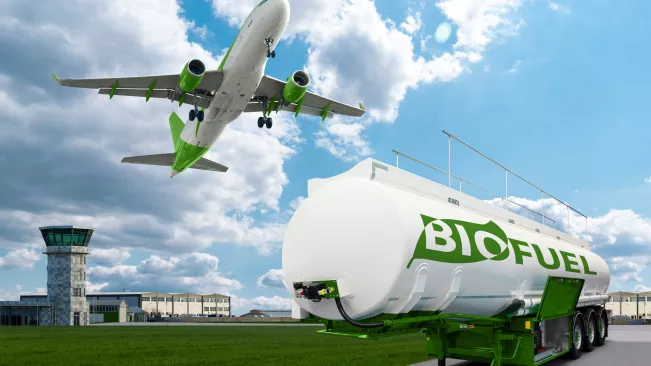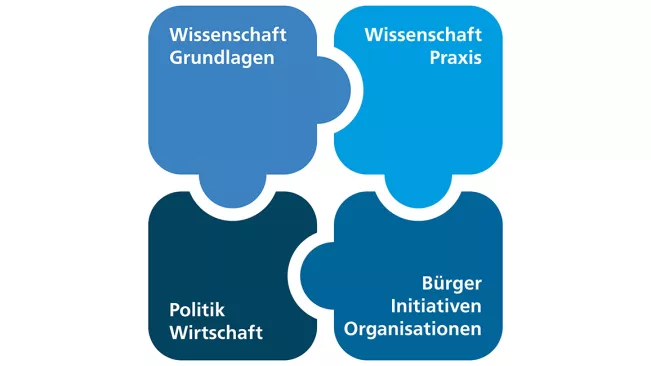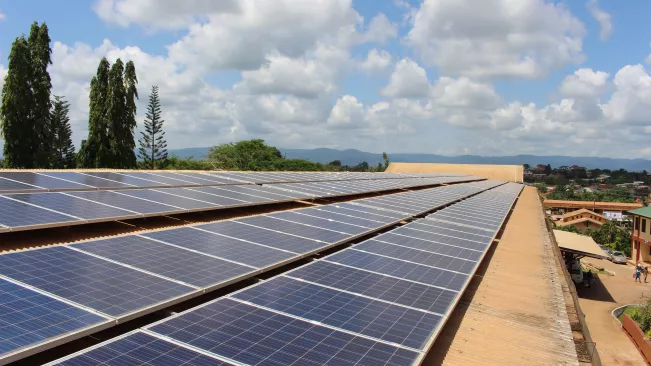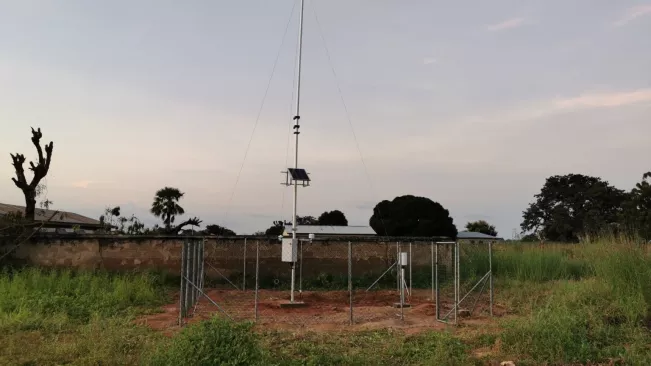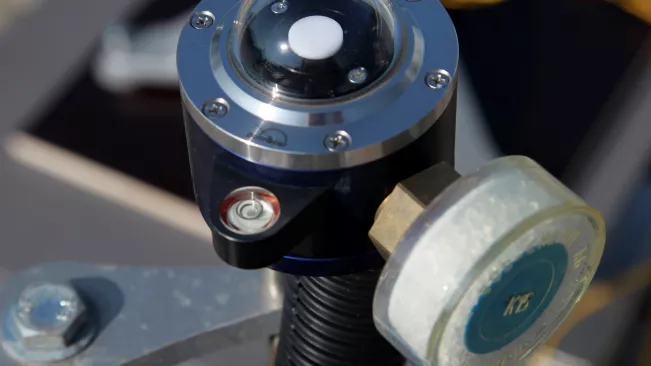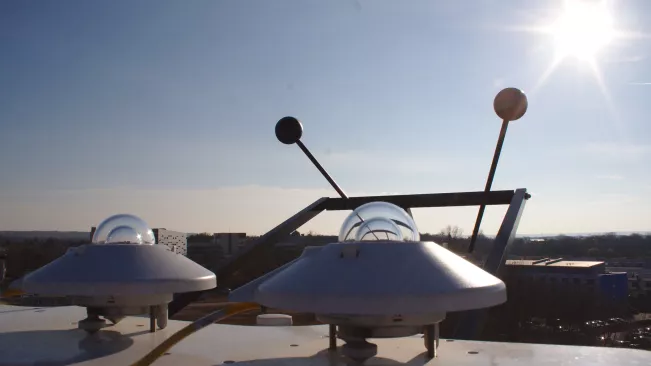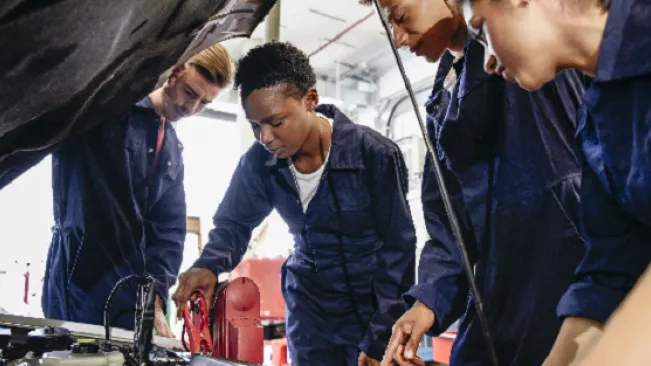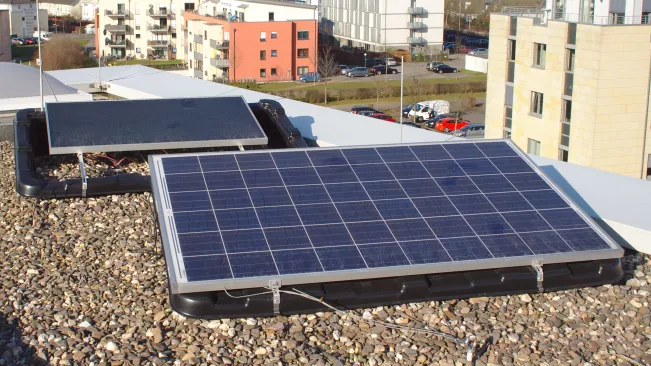International Centre for Sustainable Development (IZNE)
Sustainable Technologies and Resource Usage
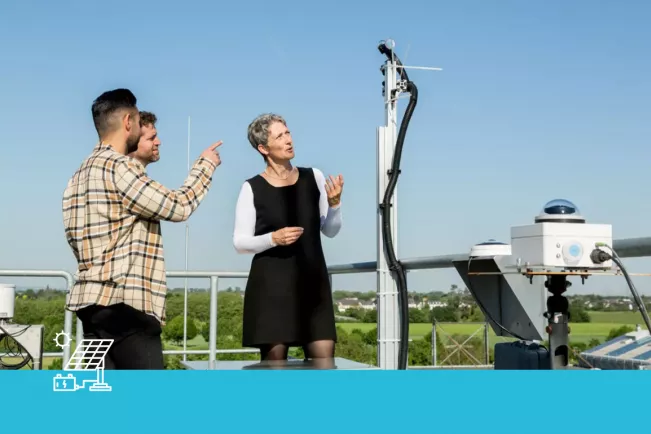
The research field explained in 5 minutes
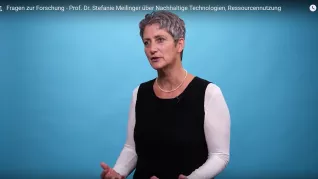
The research field at a glance
The central focus fields of the research group "Sustainable Technologies and Resource Usage":
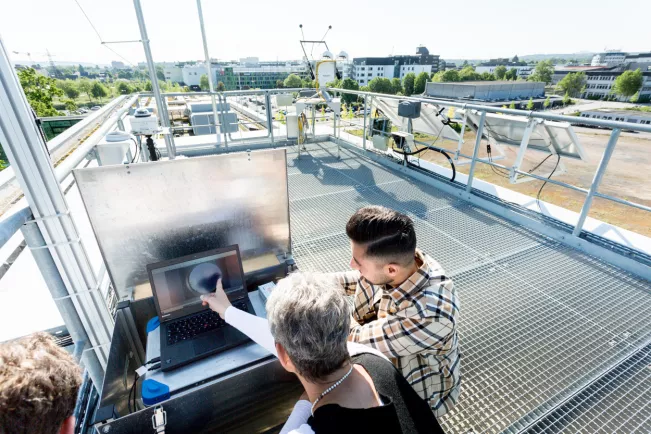
- Sustainable energy systems
- Sustainable mobility
- Sustainability of technological transformation processes
The strategic starting point for the work of the International Center for Sustainable Development (IZNE) is its orientation toward the UN Sustainable Development Goals (SDGs). The 17 formulated Sustainable Development Goals (SDGs) form the core of the "2030 Agenda for Sustainable Development". As a member of the German Sustainable Development Solutions Network, we thus contribute to promoting sustainable development in Germany and German commitment to sustainable development worldwide.
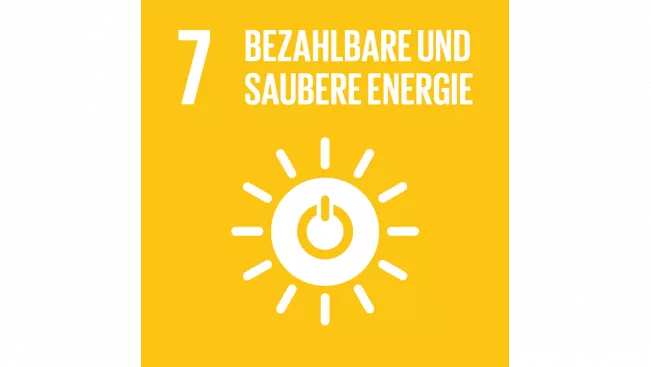
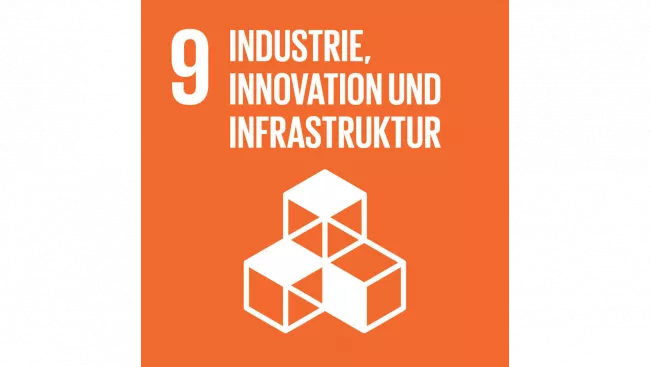
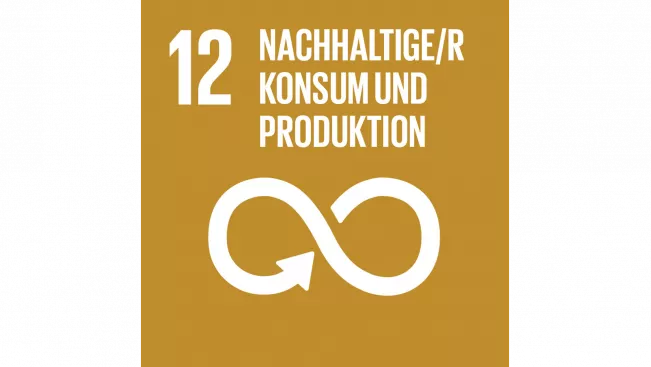
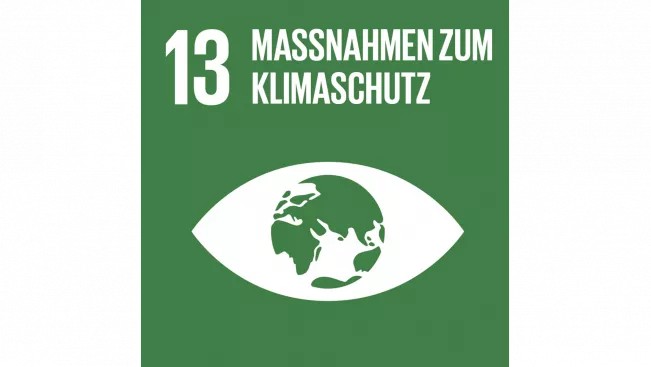
The questions of the research focus Sustainable Technologies and Resource Use are oriented towards the Sustainable Development Goals (SDGs) adopted by the United Nations in September 2015. The goals 'Affordable and clean energy' (SDG 7)', 'Industry, innovation, infrastructure' (SDG 9)', 'Sustainable consumption and production' (SDG 12) and 'Climate action' (SDG 13) are the focus of the considerations.
Sustainable transformation of the energy and transport sector
Sustainable technology development seeks technical solutions to improve people's living conditions in line with the UN Sustainable Development Goals (SDGs) without having negative ecological or social consequences. On the other hand, technical solutions must be designed in such a way that they still function and are used even under changing ecological and social boundary conditions. At the "International Center for Sustainable Development", the interplay between technological change and ecological change processes, but also the interaction between technological development and social change, is investigated in different, mostly interdisciplinary approaches. The area of sustainable technologies focuses on technical issues from the energy and mobility sector with the aim of making the research results usable in a transdisciplinary manner in the sense of sustainable regional and international development.
The coupling of both sectors requires technical innovations that allow electricity-based provision of energy for the transport sector through adequate storage technologies (batteries, hydrogen, synthetic fuels) for sector coupling. The sustainable transformation of both sectors requires an in-depth understanding of dynamic system behavior of generation, storage and consumption as well as a holistic understanding of the associated impacts on the environment and society.
„In view of the climate crisis and the challenges it poses, my position is clear: we must act. To do this, we must keep in mind from the outset when developing new technologies how their production and use will affect the environment and people's lives. But we should also consider whether our technologies will still work in a changed climate. In research and teaching, we therefore ask ourselves and our students how we can include and consider the ecological and social consequences.”
Prof. Dr. Stefanie Meilinger - Professor for Sustainable Technologies, esp. Energy Efficiency and Renewable Energies/Director of the International Centre for Sustainable Development (IZNE)
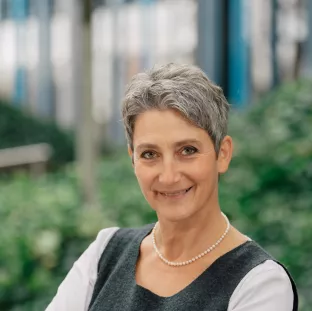
The following questions are in focus:
What influence do environmental factors have on regenerative energy supply?
Part of the research at IZNE deals with the influence of weather, air pollution and climate on solar energy supply. The aim of the research is to improve the prediction of solar energy supply under different weather and climate conditions. Some of the activities focus on the role of aerosols and dust, other work on the influence of inhomogeneous cloud cover. Energy meteorology provides an important basis for the development of intelligent planning and control tools and thus for the digitalisation of the energy transition by improving the predictions of solar energy production and the understanding of the weather-related dynamics of grids with a high proportion of solar power and integrated storage. Here you can read more about sustainable energy systems with a focus on energy meteorology and energy storage.
What influence do new technologies in the energy and transport sector have on the climate and the environment?
The sustainable transformation of the energy and transport infrastructure requires solutions that are actually climate-friendly and low in emissions. The development and investigation of alternative concepts as well as the evaluation of the associated environmental impacts is part of the research at IZNE. Here, the method of life cycle assessment is used for ecological evaluation and optimisation. Context-dependent solution approaches for different modes of transport, regions and countries are pursued, whereby the focus is increasingly on questions of sector coupling with the help of power-to-X technologies. Here you can read more about sustainable mobility.
How do institutional change processes and technological developments influence each other?
The sustainable transformation of energy and transport systems requires a profound understanding of the interaction between society and technosphere. For research at the IZNE, this means that engineering and social sciences jointly investigate how technical changes in energy supply affect societal structures and, vice versa, what influence societal and institutional changes have on the development and diffusion of technologies. Here, results of development research are applied to the energy sector in order to better understand the dynamics of the innovation and transformation processes necessary for sustainable development. Here you can read more about our project Enershelf - Energy supply for healthcare in ghana.
Research focus Power Electronics
Power electronics as a key technology for a reliable, stable and sustainable energy supply is researched and developed in the Power Electronics and Power Systems-Laboratory (PEPS-Lab), headed by Professor Marco Jung.
„In the electrical energy supply system, power electronics are used, among other things, to connect renewable energies, for sector coupling and to connect storage systems and consumers. Power electronics increases efficiency in the industrial, mobility and heating sectors and is therefore a key technology for the success of the energy transition.”
Prof. Dr. Marco Jung - Professor for Electromobility and Electrical Infrastructure with a focus on Power Electronics/ Director of the International Centre for Sustainable Development (IZNE)

Teaching
In 2011, UNESCO decided to realign global engineering education with sustainability in mind. The previous initiative was supported by many internationally active technology groups.
The background to this demand is the recognition that engineers contribute a great deal to improving people's lives. However, by no means everything that is technically possible, not everything that seems sensible from our current point of view, is also useful or a good thing in the long term in other parts of our planet.
Against this background, the EMT department has introduced the "Blaue Schiene" in the bachelor's degree programs in mechanical and electrical engineering. These are modules in which aspects of sustainability are taught. Each semester, at least one lecture, seminar or project is offered in which students learn about the fundamentals of sustainable technology. In addition, since the winter semester 2017/18, the department has been offering the course „Nachhaltige Ingenieurwissenschaften“. The basic question of this course is: How can engineers ensure that technological boundaries shift within the framework of economic, ecological and social limits in order to secure the right to equal living conditions for all people in the future. Starting in the summer semester of 2021, the range of courses will be supplemented by a master's degree program in "Sustainable Engineering", which will be devoted in particular to sustainable system development in the context of sector coupling of the energy and transport sectors.
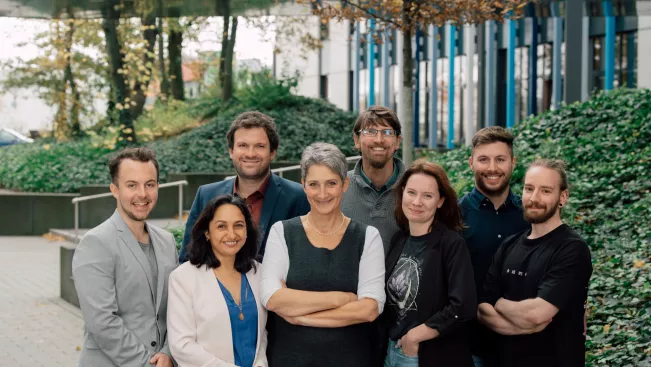
Any further questions?

Stefanie Meilinger
Professor for Sustainable Technologies, esp. Energy Efficiency and Renewable Energies, Director of the International Centre for Sustainable Development (IZNE), Department Engineering and Communication (IWK)
Research fields
Location
Sankt Augustin
Room
F 321
Address
Grantham-Allee 20
53757 Sankt Augustin
Telephone
+49 2241 865 718
Marco Jung
Professorship for Electromobility and Electrical Infrastructure with a focus on Power Electronics
Research fields
Location
Sankt Augustin
Room
B213
Address
Grantham-Allee 20
53757 Sankt Augustin
Telephone
+ 49 2241 865 316Location
Sankt Augustin
Room
B213
Address
Grantham-Allee 20
53757 Sankt Augustin
Telephone
+ 49 2241 865 316
Location
Sankt Augustin
Room
F 322
Address
Grantham-Allee 20
53757 Sankt Augustin

Felix Hönighausen
Research assistant , Life cycle assessment in the reTURN project
Location
Sankt Augustin
Room
F 320
Address
Grantham-Allee 20
53757 Sankt Augustin

Eva Jurgeleit
Research associate 'Sustainable Technologies and Resource Usage'
Location
Sankt Augustin
Room
F 320
Address
Grantham-Allee 18
53757, Sankt Augustin
Telephone
+49 2241 865
Maria Fernanda Lozano Gacha
Research Associate Ecological Product Improvement - NeLiPro
Location
Sankt Augustin
Room
F 320
Address
Grantham-Alle 20
Sankt Augustin

Moritz Appel
Student research assistant / Life cycle assessment of hydrogen production using methane pyrolysis
Location
Location
Sankt Augustin
Address
Grantham-Allee 20
53757 Sankt Augustin

Location
Sankt Augustin
Room
B 025
Address
Grantham-Allee 20
53757 Sankt Augustin
Telephone
+49 2241 865 700Links
Further links

